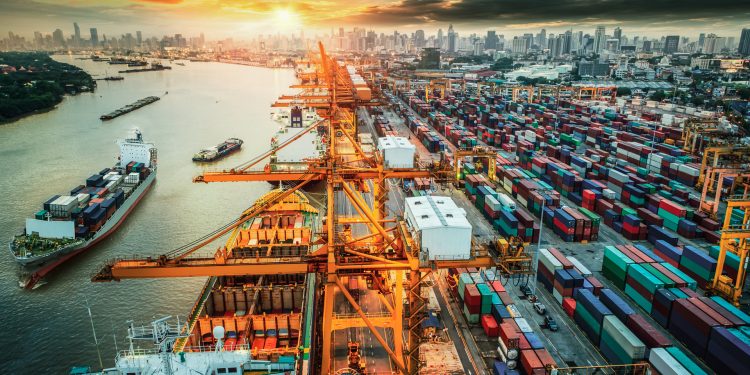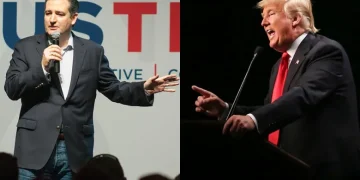Daron Acemoglu
Global supply chains used to be the last thing policymakers worried about. The topic was largely the concern of academics, who studied the possible efficiency gains and potential risks associated with this aspect of globalisation. Although Japan’s Fukushima nuclear disaster in 2011 had demonstrated how supply-chain disruptions could impact the global economy, few anticipated how central the problem could become.
Not anymore. Today’s supply-chain bottlenecks are creating shortages, propping up inflation, and preoccupying policymakers around the world.
US President Joe Biden’s administration deserves credit for recognising that supply chains are key to future economic security. In February 2021, Biden issued an executive order directing several federal agencies to secure and strengthen the American supply chain; and in June, the White House published a 100-day review on “Building Resilient Supply Chains, Revitalizing American Manufacturing, and Fostering Broad-Based Growth.”
This 250-page report contains many important proposals. Some are already part of the broader discussion on improving the US workforce’s skills and the economy’s capacity for innovation. Other ideas have been circulating for a while in international relations and security studies; for example, the document considers the national-security implications of defence and other critical industries’ reliance on imported inputs.
But the review’s most important contribution is its observation that global supply chains have imposed various social costs: “Our private sector and public policy approach to domestic production, which for years prioritized efficiency and low costs over security, sustainability and resilience, has resulted in supply chain risks.” The review then asks whether hyper-globalized supply chains are so great for economic efficiency after all.
The default position among economists is “yes, they are.” When two firms enter into a transaction in which each will gain something, that is good for both firms and also probably for the rest of the economy, owing to the resulting efficiency improvements and cost reductions. Whether this involves a US manufacturer offshoring the production of some inputs to a Chinese firm is beside the point.
Yet supply chains can pose a danger to an economy in two important ways (beyond the defence-related concerns mentioned above). The more complex a supply chain becomes, the greater the economic risks. A break in any link can affect the whole chain and send prices surging if it creates sudden shortages of a necessary input.
The worst-case scenario is when a failure in one part of the chain triggers domino effects, bringing down other firms and bringing the entire sector to a standstill. Logically, this scenario is similar to what one finds in financial networks, where the failure of one bank can push others into insolvency or even bankruptcy, as happened in 2008 following the collapse of Lehman Brothers.
In principle, because uncertainty is costly, businesses will take these risks into account when deciding to build supply chains. In practice, however, there are good economic reasons why firms may overextend their supply chains. For one thing, firms will account for their own risk, but not for the systemic effects they are creating, nor for the risks they are imposing on other firms or the entire economy.
Moreover, when global competition creates powerful incentives to reduce costs, even small price differences offered by foreign suppliers can become attractive, especially in the short term. In this age of stock-market options and hefty bonuses, financial interests also factor into managers’ considerations. CEOs enjoy immediate compensation when they can achieve cost reductions and increase profits, whereas the significant costs of future uncertainty – or even bankruptcy – will likely be someone else’s problem.
A second way that companies may overextend their supply chain is subtler but no less important. The problem, the White House review notes, is that “the United States has taken certain features of global markets – especially the fear that companies and capital will flee to wherever wages, taxes and regulation are lowest – as inevitable.” This statement echoes economist Dani Rodrik’s prescient observation that globalisation is not just about trade in goods and services; it is also about the sharing of rents. As such, the globalisation of supply chains is an integral part of the shifting balance between capital and labour.
The most straightforward mechanism for this process is the offshoring of inputs, the mere threat of which can be used by managers to keep wages low. This happens on both ends of the offshoring transaction: US companies can pay less to their employees by expanding their supply chain to countries (such as China or Vietnam) where wages are already lower as a result of lax labour regulations.
A fragmented supply chain may also make it more difficult for workers to organise for collective bargaining, creating yet another benefit for businesses. Companies may even reap tax advantages from globalising their supply chain, if doing so allows them to book profits in lower-tax jurisdictions.
This second reason is problematic for the US economy as well. It suggests that managers will tend to globalise their companies’ supply chains even when doing so is not more efficient, simply because doing so allows them to shift rents away from workers and toward shareholders. Not only does this create an excessively overextended supply chain; it also distorts the income distribution by suppressing wages, especially for low- and middle-skill workers.
The White House report proposes keeping more of the supply chain in the US, especially in manufacturing. But how can this be achieved? A two-pronged approach would be the most effective. First, the need for meaningful inducements for businesses to invest in their domestic supply chains implies that the tax advantages of offshoring inputs should be eliminated, and the opportunities for labour-regulation arbitrage should be curtailed.
But other, more fundamental changes are also needed. The global supply-chain mess is an opportunity for the US to have a broader conversation about the economy and what it is for. As long as CEOs remain obsessed with short-term stock-market performance, bolstered by the ideology of “shareholder value,” they will seek ways to shift rents away from their workers, whatever the risks.
The writer is Professor of Economics at MIT. ©Project Syndicate






































